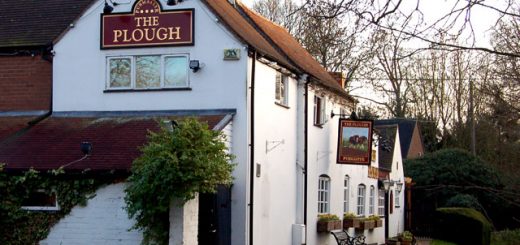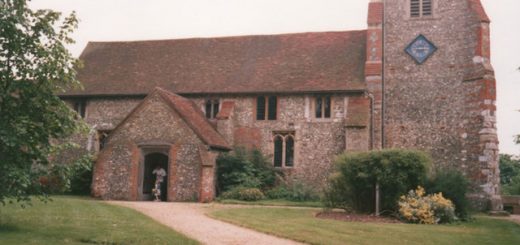Buckinghamshire Revenant
The following by the Augustinian Canon William Parvus, also known as William of Newburgh (or Newbury) (Born 1136 – Died 1198) concerns a haunting or what is sometimes considered a potential vampire case.
In these days a wonderful event befell in the county of Buckingham, which I, in the first instance, partially heard from certain friends, and was afterwards more fully informed of by Stephen, the venerable archdeacon of that province. A certain man died, and, according to custom, by the honorable exertion of his wife arid kindred, was laid in the tomb on the eve of the Lord’s Ascension. On the following night, however, having entered the bed where his wife was reposing, he not only terrified her on awaking, but nearly crushed her by the insupportable weight of his body. The next night, also, he afflicted the astonished woman in the same manner, who, frightened at the danger, as the struggle of the third night drew near, took care to remain awake herself, and surround herself with watchful companions. Still he came; but being repulsed by the shouts of the watchers, and seeing that he was prevented from doing mischief, he departed. Thus driven off from his wife, he harassed in a similar manner his own brothers, who were dwelling in the same street; but they, following the cautious example of the woman, passed the nights in wakefulness with their companions, ready to meet and repel the expected danger. He appeared, notwithstanding, as if with the hope of surprising them should they be overcome with drowsiness; but being repelled by the carefulness and valor of the watchers, he rioted among the animals, both indoors and outdoors, as their wildness and unwonted movements testified.
Having thus become a like serious nuisance to his friends and neighbors, he imposed upon all the same necessity for nocturnal watchfulness; and in that very street a general watch was kept in every house, each being fearful of his approach unawares. After having for some time rioted in this manner during the night-time alone, he began to wander abroad in daylight, formidable indeed to all, but visible only to a few; for oftentimes, on his encountering a number of persons, he would appear to one or two only though at the same time his presence was not concealed from the rest. At length the inhabitants, alarmed beyond measure, thought it advisable to seek counsel of the church; and they detailed the whole affair, with tearful lamentation, to the above-mentioned archdeacon, at a meeting of the clergy over which he was solemnly presiding. Whereupon he immediately intimated in writing the whole circumstances of the case to the venerable bishop of Lincoln, who was then resident in London, whose opinion and judgment on so unwonted a matter he was very properly of opinion should be waited for: but the bishop, being amazed at his account, held a searching investigation with his companions; and there were some who said that such things had often befallen in England, and cited frequent examples to show that tranquillity could not be restored to the people until the body of this most wretched man were dug up and burnt. This proceeding, however, appeared indecent and improper in the last degree to the reverend bishop, who shortly after addressed a letter of absolution, written with his own hand, to the archdeacon, in order that it might be demonstrated by inspection in what state the body of that man really was; and he commanded his tomb to be opened, and the letter having been laid upon his breast, to be again closed: so the sepulcher having been opened, the corpse was found as it had been placed there, and the charter of absolution having been deposited upon its breast, and the tomb once more closed, he was thenceforth never more seen to wander, nor permitted to inflict annoyance or terror upon any one.
The information above does not provide an accurate location for this case and Buckinghamshire is a large area, so no map has been supplied for this article yet.




Re: Buckinghamshire Revenant
Dating this case exactly would first require identifying when there was an Archdeacon of Buckinghamshire called Stephen.
I suppose we can discount the following years:
1170–1173: David, Archdeacon of Buckinghamshire
1174 – : Nicholas, Archdeacon of Buckinghamshire
Re: Buckinghamshire Revenant
‘On the following night, however, having entered the bed where his wife was reposing, he not only terrified her on awaking, but nearly crushed her by the insupportable weight of his body.’
I wonder if this is an early account of possible sleep paralysis or old hag syndrome.
Re: Buckinghamshire Revenant
The action of this revenant is that which Incubi use when adopting the male form of that
spirit.The intention of such is to suffocate the victim who must be asleep by squatting on
the victims chest.